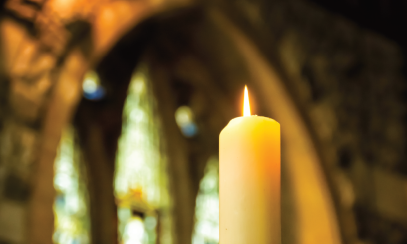What does the synod mean?
Dear Fr. Joe: I keep reading conflicting things about the synod – some bloggers are saying it’s going to ruin the Church, some news stories are saying the Church is going to change a lot of teachings. What’s going on?
Thank you so much for this question. This is an important time in our Church and, as far as I can determine, this is the first time we as a Church are having a synod in the Internet age. Because of that, the synod itself, while not a new phenomenon, is presenting us with uncharted waters to wade through. We’ve never, in our 2,000-year history, had a situation where there was such a capacity for the exchange of information. How do we chart these waters?
Frankly, I lack the space to go into what the synod is specifically doing or not doing (see pages 16-17 for a report on the synod). Instead, I’d like to look at our response to the synod as the key to this question and answer it in the context of the Advent and Christmas Season we celebrate this time of year.
When we look at the synod in light of the infancy narrative of Jesus Christ, I see within it an invitation to do two things: cast out fear and embrace trust.
We’ll start with the idea that we need to cast out fear. When we look at the birth of Jesus, we see three passages that stand out. First, in Luke 1:13, the angel appears to Zechariah and tells him, “Do not be afraid.” In Luke 1:30, the angel of God appears to Our Blessed Mother and says, “Do not be afraid.” In Luke 2:10, the angels appear to the shepherds and the first words they speak are, “Do not be afraid.”
This is in stark contrast to the voices out there that would really love for us to click that link that takes us to their blog or news story – and nothing will prompt us to do so quicker than fear. These authors would like us to be very afraid that God would be so rude and bold as to shake us up a bit and cause us to re-evaluate our lives.
To this fear, we must let our God speak hope to us, and our hope is founded on Jesus who does not change. He promised to lead this Church and that promise is not contingent upon how faithfully we respond to it. To put it simply, Jesus promised that “The gates of hell will not prevail against [this Church]” and if the gates of hell won’t prevail against it, then 21st-century modernism has no chance either.
In this season, we remember that Jesus was born in a manger, not a palace. His birth was announced to shepherds, not princes. Our God is a God of the unexpected who acts for our benefit and good: He is not limited by our ideas of what love is and what is loving. This truth of Jesus’ birth is a challenge to those who, in the name of a human idea of love, want to use the synod gathering as a time to promote change in the Church that the Church is not called to. These voices are the ones intent on re-creating the Church into their image and likeness, or into an image and likeness that doesn’t challenge them personally. These voices tend to serve as a distraction to pull us from our duty as God’s children to be obedient to his truth, not to what we want to be true.
We speak the truth to what we feel, we don’t try to make sure that what we feel is the truth. What is the truth? God is in charge. God is leading us, God is guiding us, God is protecting us. Because of that, we need not fear and we need not manipulate circumstances, news stories or people to achieve what we want.
To those who are promoting fear and to those who are pushing for changes that Scripture and tradition forbid, I invite us to pray in this Advent and Christmas season to let God be God. I urge us to pray to grow in trust in God. To put it simply, we either trust that God is leading his Church or we don’t: it’s that simple. I tend to worry that all these “Catholic blogs” and commentators out there serve only to divert us from the task of personal holiness. As long as we can focus on the monumental institution that is our Church, then we don’t have to go about the daily process of conversion that we are called to.
My job is not to “fix the Church” or “protect the Church.” My job is to allow God’s grace and Holy Spirit to guide me into deeper conversion each day and to encourage all around me to allow that in their lives. If enough of us do that, the Church will be holy because we will be holy.
This Christmas, remember that when St. Joseph and Our Blessed Mother arrived at the place Jesus was to be born, they found a crowded, noisy city where there was no room for their child to be born.
I urge you not to let your hearts become that place. Turn off the noise. Tune out the fear mongers and the people who point their anger in a vaguely spiritual direction and call it “evangelization.” Their noise is chaos, and it crowds our hearts until there is no room for Christ.
Find peace in Christ’s love this season, and comfort in the surety that he is leading his Church. Make your hearts quiet and ready for him to enter them, as he entered the world in that stable in Bethlehem.
Enjoy another day in Christ’s presence.



